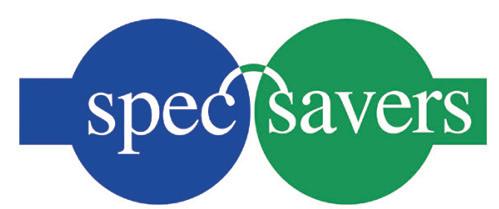LOYALTY PROGRAMMES ON THE RISE IN SA
Wealthier consumers are using almost double the number of loyalty programmes as mass market consumers

Loyalty programme use in South Africa continues to grow, particularly among wealthier consumers. The South African Loyalty Landscape white paper by Truth & BrandMapp says 76% of South Africans are using loyalty programmes, up from 67% in 2015.
This is relatively consistent across income levels and, for the first time in nearly a decade of tracking how consumers use loyalty programmes, male and female use of loyalty programmes is the same. The only demographic which skews away from this trend is the younger generation, with only 55% of economically active under 25s using loyalty programmes. However, among less wealthy consumers, 72% of under-25s use and rely on loyalty programmes.
In a tough economic climate, consumers are using loyalty programmes more than they did in 2023. The report points out that it doesn t really pay dividends as a consumer to be too promiscuous in programme choice. The more a consumer invests in the programme which they really benefit from, the greater their reward potential. On the other hand, if a consumer spreads themselves too thin across a broad range of loyalty brands, they are unlikely to reap maximum benefits from any of their loyalty choices, says the report.
The research found a notable difference between economically active consumers (defined as consumers living in homes with a monthly household income of R10,000 or more per month) and massmarket consumers (defined as consumers with a household income of less than R10,000 a month) in the number of programmes used. Wealthier consumers use almost double the number of loyalty
programmes as mass-market consumers. The white paper says the “low repertoire of programmes used by mass-market consumers does open up an opportunity for more brands serving this market segment to offer loyalty benefits in some shape or form”
Respondents who said they don t use loyalty programmes said the main reasons are that they don t spend enough to earn decent rewards; it takes too long to earn rewards; they are concerned about personal data security; and they re too hard to understand. The white paper says there are simple, effective ways to counteract the sentiment that it takes too long to earn rewards by, for example, rewarding nontransactional behaviours to make consumers feel appreciated and encourage engagement in the loyalty programme.
The three biggest motivations for economically active consumers to engage with loyalty programmes are to be instantly rewarded (45%), to build up points for big rewards (41%), and to spend more to earn more rewards (35%).
In the mass market, the three biggest motivators are to earn more rewards (61%), to build up points for big rewards (48%), and to avoid points expiring before they can be used (33%).
The research reveals that cashback remains the preferred benefit of economically active consumers. Massmarket consumers also value cashback but prefer airtime or data. Local consumers are not alone in their preference for cashback rewards, with a recent poll by Annex Cloud revealing that 46% of its global followers preferred cashback incentives and 36% preferred points-based programmes.
Some consumers prefer to build up rewards and others prefer instant

Programme managers need to understand who their customers are before introducing an expiry rule which could seriously upset their most loyal customers
AMANDA CROMHOUT CEO of Truth
gratification. But the report says this group isn t mutually exclusive, with 47% of consumers preferring to do both. These are the most savvy and demanding loyalty members.
The biggest gripe from all consumers is points expiring before they can use them. If there is one way to upset any loyalty member it is to expire their points before they wish to use them. In fact, 59% of loyalty-mature consumers who like to build up points and receive instant discounts really hate it when points expire vs the average of 32% for economically active consumers ... programme managers need to understand who their customers are before introducing an expiry rule which could seriously upset their most loyal customers, says white paper author
Truth recommends allowing active members to build up points should they wish to, or redeem them immediately as long as they are active. “Active can be defined as any period of time that makes sense for the loyalty brand. Typically, retailers look at a 12-month period (but this can vary from a grocery retailer with a higher frequency and a furniture or general merchandise retailer with a lower frequency), says Cromhout.
Interestingly, programme tiers don t feature significantly on anyone s motivations towards loyalty programmes.
Among economically active users, loyalty programmes influence where they buy groceries (78%), fuel (55%), bank services (48%), health products and pharmaceuticals (35%) and clothes (33%), as well as which restaurants and coffee shops they use (27%).
Among mass-market consumers, loyalty programmes influence where they get their groceries (71%), bank services (51%), clothes (35%) and health products and pharmaceuticals (29%), as well as which restaurants and coffee shops they visit (18%).
The Truth & BrandMapp Loyalty white paper offers one of the most insightful studies into the local loyalty industry. The annual BrandMapp consumer landscape study surveys 35,000 respondents and represents the needs, perceptions and behaviour of about 13-million South African consumers with a monthly household income of R10,000 per month. The MoyaApp research reaches 11,500 consumers with a household income of less than R10,000 per month.
10 LifeStyle 21 • 04 • 2024 Sunday Times 10/11
SPONSORSHIP
LOYALTY/REWARD PROGRAMMES
Amanda Cromhout, founder and CEO of Truth, a Cape Town-based loyalty consultancy.
Picture: 123RF.COM/ Iakovenko

The most popular loyalty programmes
Economically active consumers use grocery brands the most
Checkers Xtra Savings and Clicks
ClubCard are the most used loyalty programme across wealthier consumers, according to the South African Loyalty Landscape white paper by Truth and BrandMapp. The top two are followed by Pick n Pay Smart Shopper, Dis-Chem Loyalty Benefit, Woolworths WRewards, Spar Rewards, Shoprite Xtra Savings, Makro mCard, FNB eBucks and TFG Rewards.
In the retail sector, the five most used programmes among economically active consumers are Checkers Xtra Savings, Clicks ClubCard, Pick n Pay Smart Shopper, Dis-Chem Loyalty Benefit and Woolworth WRewards. In financial services, the most used programmes are FNB eBucks, Capitec Live Better, Discovery Vitality, Absa Rewards and Standard Bank UCount.
For mass-market consumers, Shoprite Xtra Savings is the most used programme, followed by Capitec Live Better, MoyaApp Rewards, MTN YelloBucks, Checkers Xtra Savings, Pick n Pay Smart Shopper, Clicks ClubCard, Vodacom VodaBucks, Spar Rewards and TFG Rewards.
In the retail sector, Shoprite Xtra Savings, MoyaApp Rewards, Checkers Xtra Savings, Pick n Pay Smart Shopper and Clicks ClubCard are the most used programmes. In financial services, Capitec Live Better rates number one, followed by FNB eBucks, Absa Rewards, Old Mutual Rewards, Nedbank Greenbacks and Standard Bank UCount.
In the economically active category, six out of the top 10 most used loyalty programmes are grocery retailers. For mass-market consumers, only four grocery retailers are listed in the top 10 most used loyalty programmes. Mass-market consumers seem to value non-retail brands in their most used loyalty programmes more than wealthier consumers.
More than half of economically active consumers say that loyalty programmes significantly influence their fuel brand of choice, with loyalty rating higher than friendly and efficient staff, fuel preference, convenience store choice, car wash or fast food outlet.
If consumers had to choose just one programme they couldn t live without, Discovery Vitality is the programme of choice for economically active consumers, while Capitec Live Better is the programme of choice for mass-market consumers.
The top five programmes that both economically active consumers and massmarket consumers say they can t live without are Absa Rewards, Capitec Live Better, Checkers Xtra Savings, Clicks ClubCard and Discovery Vitality.
THE CARD THAT CLICKS WITH CUSTOMERS
Simplicity, accessibility, value and personalisation keep ClubCard members happy
Clicks ClubCard has long been one of the most used loyalty programmes in South Africa, with more than 11million active members. It’s also one of the most generous retail loyalty programmes in the country, giving back more than R700m to consumers in the past year alone.
The success of the programme, says Melanie van Rooy, head of marketing at Clicks Group, is its simplicity, accessibility, value and differentiated position. ClubCard members can earn cashback at a wide network of health, beauty, wellness and lifestyle partners including Engen, eBucks, Discovery, ARC and Sorbet.
Van Rooy says ClubCard plays an important role in growing customer loyalty and sales. This is evidenced by the fact that the average basket value of ClubCard member is typically 85% higher than a nonloyalty member, with more than 80% of sales contributed by ClubCard members.
Given constrained household budgets amid a low growth economy, most members of loyalty and rewards programmes are aiming to ensure their money goes further. ClubCard members are no exception. Van Rooy says redemption behaviour has changed, with lower spend and cash-strapped customers redeeming their cashback fully as soon as it is loaded onto their cards.


“The importance of value and saving as a loyalty benefit has become more pronounced, especially as times remain tough economically,” she says.
Research by McKinsey reveals that nearly three-quarters of consumers expect companies to deliver personalised interactions. Key to the success of a personalised customer experience is for brands to recognise that each customer is

The importance of value and saving as a loyalty benefit has become more pronounced, especially as times remain tough economically
DR MELANIE VAN ROOY Head of marketing at Clicks Group
unique and to spend time understanding their behaviour and buying habits. For Clicks, personalisation is a continual journey of improvement, says Van Rooy.
“Clicks has adopted an integrated approach to its customer strategy, encompassing personalisation, loyalty and customer experience premised on deep customer data analytics. It’s a strategy which aims to leverage customer insights across the entire organisation, aligning campaigns with specific objectives for each customer segment.”
The rich level of customer data and insights revealed by the programme, she says, has enabled Clicks to enhance its engagement with customers, understand their behaviour at a granular level, and optimise and personalise the programme’s offerings and communication across the omnichannel to enhance consumers’ shopping experience and deliver more value to them.





11 LifeStyle 21 • 04 • 2024 Sunday Times
SPONSORSHIP
LOYALTY/REWARD PROGRAMMES
SPONSORSHIP
GIVING MEMBERS WHAT THEY WANT, WHEN THEY WANT IT
Through
cutting-edge data science, TFG customers get access to innovative, rewarding shopping experiences
TFG Rewards is one of South Africa’s largest fashion retail loyalty programmes, with more than 35.6million members. In a tough economic climate when consumers are struggling to purchase essentials, TFG continues to deliver more than R1bn in savings back to customers, says Fionna Ronnie, head of customer & loyalty at TFG.
“Creating and maintaining a loyalty programme with this many members requires meticulous planning and dedication. Through cutting-edge data science that assesses more than 20-billion data points and bespoke customer analytics, we provide our customers with rewards they truly want,” says Ronnie.
In addition to accumulating numerous accolades over the years, TFG Rewards is frequently referred to as a best-in-class example of a fashion and lifestyle loyalty programme. A key differentiator of the programme is the “Swipe & Save” offers. These are offers of the season’s most wanted items, which are curated working with the group’s 26 South African retail brands on the programme.


Someone wins every 30 minutes, across every brand, forging emotional connection and helping customers live their best lives
FIONNA RONNIE Head of customer & loyalty at TFG
TFG Rewards members are given access to innovative and unique experiences, and by leveraging AI and machine learning, TFG successfully launched TFG Rewards CoinQuest, whichwent to market in December 2023. CoinQuest drove customer engagement across stores, social media and via a gamification platform. The results were impressive it delivered a 50% uplift in turnover, doubled redemption rates which is industry leading and attracted 1.3 times more shoppers with a Rewards card.
Gamification offers TFG’s brands an opportunity to move away from purely transactional loyalty engagements to delivering experiential loyalty. Customers love to engage with their favourite brands on this platform, spending as much as six minutes per session vs the industry average of three minutes. TFG Rewards’ gamification platform saw the introduction of a non-fungible token concept, enabling a Reward’s member to win a TFG Rewards Gold Card to the value of R100,000.
In addition, TFG’s AI-driven data science models enabled it to deliver an
additional 47% in incremental revenue. The customer data produced by the platform has been leveraged to deepen the retailer’s understanding of member choices and preferences as well as to drive further precision marketing campaigns.
TFG is a destination of choice for Gen Z shoppers, with various TFG brands voted as South Africa’s coolest brands in the 2023 Sunday Times GenNext survey.
“We know that our Gen Z shoppers want choice, and this is where they can ‘Swipe & Win’ their share of R45m in rewards, ranging from clothing, food, transport, entertainment and more, putting members in control of their prize selection. Someone wins every 30 minutes, across every brand, forging emotional connection and helping customers live their best lives,” says Ronnie.
“We have a culture of innovation at TFG, pioneering new technologies that result in more rewarding shopping experiences and providing our TFG Rewards members with more convenience and choice. Now, more than ever, we’re focused on delivering choice and instant gratification when and how members want it.”
CUSTOMER ACQUISITION TAKES A BACK SEAT TO RETENTION
With increased competition, loyalty progammes need to go beyond the ‘one-size-fits-all’ approach to keep up

Loyalty programmes do create brand loyalty, with numerous studies showing the simpler the programme is to understand and to receive discounts and cashback, the better. When you are at the point of paying and the cashier tells you how much in rand you have in to spend, that s the sweet spot
Customer experience specialist, Nathalie Schooling, CEO of nlightencx, says that over the past few post-pandemic years, customer acquisition has taken a back seat to customer retention or consumer loyalty.
This is largely to do with the increased competition that brands face. It s becoming harder for customers to remain loyal to one brand because they are both budget-conscious and spoilt for choice, says Schooling. So, companies really have to work hard to earn and keep their attention. This is where loyalty programmes can work their magic.
However, loyalty programmes are not a silver bullet. In the same way that customer expectations keep changing, loyalty programmes need to keep up, and the successful ones are the programmes that are going beyond the “one-size-fits-
all approach, she says.
The shift to more experience-based rewards in recent years has been driven by research showing that customers will choose a good experience over price, which means loyalty programmes that offer benefits over and above points or monetary rewards have a better chance of retaining customers in the long term.
The free 10th item programme, says Schooling, is a short-lived model which doesn t drive the kind of brand loyalty that will reach people on a deeper, more authentic level.
“People want to feel special, valued and


People want to feel special, valued and recognised. It’s the typical
‘surprise and delight’ element of a good customer experience
NATHALIE SCHOOLING CEO of nlightencx
recognised. It s the typical surprise and delight element of a good customer experience. If a programme can offer their customer exclusive rewards for their loyalty, such as the first offer on a new product or service, or access to additional services that add more value to their lives, it s a win.
The catch for brands is that they have to put in the hard work, she says. They have to get to know their customers and understand their wants and needs so that they can tailor and personalise their loyalty programmes to speak to their hearts and their minds.
12 LifeStyle 21 • 04 • 2024 Sunday Times 12/13
LOYALTY/REWARD PROGRAMMES
Picture: 123RF.COM/ patrickx007




13 LifeStyle 21 04 2024 Sunday Times
SPONSORSHIP DIS-CHEM BENEFIT PROGRAMME: GET POINTS AND GIVE BACK
No-one should miss out on the benefits of being healthy or compromise on the rewards they earn. Consumers should not have to settle, and that’s where loyalty programmes can play a crucial role, says Lynne Blignaut, DisChem’s head of loyalty & customer rewards. Dis-Chem’s Benefit Programme, which enables millions of customers to earn rewards at both Dis-Chem Pharmacy and Dis-Chem Baby City, adds real value to shoppers’ lives, she says.
“The most fundamental part of our Benefit Programme, which sets us apart from any other loyalty programme in South Africa, is our Dis-Chem Foundation. Every time a customer shops with us, not only does the customer earn points, but a portion of all eligible purchases is donated to the Dis-Chem Foundation as well.”
Established in 2006 in response to concerns about growing levels of poverty in South Africa, the Dis-Chem Foundation works closely with non-profit organisations to improve the lives of people in struggling communities. Its focus is on health, nutrition, education and clean water.
In partnership with Futurelife, Octodec and Nivea, the Dis-Chem Foundation provides more than 3-million nutritious meals to children in need every year. It also plants and helps maintain food gardens, and provides clean running water in rural communities which provides sustainable work and nutrition to those in need.
Dis-Chem community mobile clinics provide accessible primary health care where needed. The foundation’s annual campaigns include Million Comforts, which provides sanitary products to teenage girls to ensure they don’t miss school, and the Blanket Campaign, which provides blankets, beanies and gloves to old-age homes, children’s homes and animal shelters. Other beneficiaries include Community Medics, Operation Healing Hands and Hatzolah.
Blignaut says the foundation donated
The nature of consumer loyalty has changed: it s no longer just about customers sticking to a brand out of habit or convenience, but rather about the power of advocacy and the influence of trust and emotional connections, says Liezel Jonkheid, founder and director of the Consumer Psychology Lab, a boutique customer experience consultancy.
Loyalty and advocacy are two pillars of enduring success in customer-brand relationships. Yet, their nuances reveal a complex tapestry of behaviours and sentiments that heavily influence consumer decisions and perceptions, she says.
Loyalty signifies a commitment that goes beyond mere transactions, showing steadfast support of a brand, the willingness to purchase repeatedly and expand engagement within the brand s ecosystem. Citing the example of Apple customers who don t only buy an iPhone but invest in iPads, MacBooks, Apple watches and AirTags, she says this kind of expansive loyalty fosters deep brand immersion and affinity.
The legendary rivalry between Canon and Nikon, on the other hand, has also managed to successfully cultivate fiercely loyal communities, translating into repeat purchases.
Genuine loyalty, says Jonkheid, is evidenced by forgiveness in the face of shortcomings with this resilience

The most fundamental part of our Benefit Programme is our Dis-Chem Foundation. Every time a customer shops with us, not only does the customer earn points, but a portion of all eligible purchases is donated to the Dis-Chem Foundation as well

approach to its members’ daily lives and extends the value offered through affiliate partners. A member can earn points by swiping partnering bank cards at tills (Absa Rewards, Standard Bank UCount, Capitec Live Better and Sanlam Reality) for health, education and lifestyle products (SchoolDays, Discovery Vitality, Momentum Multiply, Planet Fitness and Legacy Lifestyle), and by filling up with fuel (TotalEnergies).
The biggest advantage of the Benefit Programme, says Blignaut, is that customers aren’t restricted to one offer per basket. “Customers can earn multiple rewards on the same purchase. Dis-Chem’s Benefit Programme takes advantage of instant discounts on selected products, while also earning partner and base rewards. In other words, customers are not earning one reward at the expense of another reward.”
more than R34m in the past financial year Its multi-partner programme has a base reward which is enhanced by instant discounts, a free quarterly magazine, personalised offers and newsletters, double rewards days, sticker book campaigns and automatic entry into competitions.
Members earn a percentage of their spend back in benefit rewards on all qualifying transactions. These rewards are awarded on all qualifying purchases done in store or online, and are allocated in real time and available to redeem at any time. The programme takes a comprehensive
LOYALTY VS ADVOCACY
“Added to our affiliate partner earn we also have segmented focus groups that recognises its members’ changing needs through their life stages,” says Blignaut. “A YOUth programme, for those aged 16 to 25, offers tailored discounts and double rewards on #DoubleitupMondays. The 60Plus focus group offers double points on a Wednesday.
“Our newly launched parent and baby programme, available through the DisChem app, offers vaccination tracking, free access to an online antenatal course and a development programme, videos, booking at our in-store clinics, a free Baby Bag* filled with essentials, and so much more.”

Loyalty is about building strong affinity towards the brand, rooted in genuine experiences and emotional resonance. It’sa journey which starts long before purchase and which is influenced by word-of-mouth, reviews and shared experiences

LIEZEL JONKHEID Founder and director of the Consumer Psychology Lab
For example, if a Benefit Programme member is also a member of School-Days and pays using their Capitec card, they will be eligible for all the qualifying rewards when shopping at any Dis-Chem Pharmacy and Dis-Chem Baby City. This layered approach and ability to earn rewards from numerous affiliates simultaneously is unique to Dis-Chem, she says.
“We’ve made every effort to remove all potential barriers to make it as easy as possible for our customers to earn and redeem rewards. The programme is structured in a way that ensures customers feel valued and respected, while earning real, tangible rewards.”
emphasising the depth of emotional connection and trust that loyal customers have towards their chosen brands.
Loyalty is not just about repeat purchases but also about building strong affinity and preference towards the brand, rooted in genuine experiences and emotional resonance. It s a journey which starts long before purchase and which is influenced by word-of-mouth, reviews and shared experiences.
True loyalty, she says, transcends convenience and is a conscious choice driven by satisfaction, trust and shared values. However, if a customer feels trapped in a transactional relationship with, for example, a bank or financial services provider, there is likely to be a lack of genuine loyalty, highlighting the importance of customer-centric practices and seamless experiences.
Jonkheid says that while loyalty fosters internal allegiance and repeat patronage, advocacy can be just as powerful, igniting a ripple effect of persuasion and influence, propelling brands beyond their existing customer base to forge new connections and amplifying influence.
The power of referrals and the nuances of loyalty underscore the evolving dynamics of customer-brand relationships. As consumers navigate a vast array of choices, brands must prioritise trust, authenticity and emotional connections to foster both advocacy and loyalty.
14 LifeStyle 21 • 04 • 2024 Sunday Times 14/15
LYNNE BLIGNAUT Head of loyalty and customer rewards at Dis-Chem
LOYALTY/REWARD PROGRAMMES
Picture: 123RF.COM/ peopleimages12










































15 LifeStyle 21 04 2024 Sunday Times Go Advertising 66949 Sign up for your Benefit Card in five simple ways: Accelerate your rewards with our loyalty partners Visit www.dischem.co.zaWhatsApp “Hi” to 0860 347 243 Download the Dis-Chem app from your preferred app store Visit the Customer Service Desk at any of our over 250 stores nationwide Benefit Card holders get Instant Discounts Earn rewards to spend against future purchases Get automatic entry into competitions Get exclusive offers and discounts on products Accelerate your rewards with our partner programmes Why should you join the Benefit Programme? Get more. Save more. Give more –with Better Benefits. Dial *120*1085# and follow the prompts **
did you know that joining ClubCard is absolutely FREE and takes less than 1 minute to sign up?
earn even more cashback when you use your ClubCard at our partners such as:




ClubCard members earn 10% cashback on their Flexicare health insurance premium
members 60+ earn 4% cashback every Wednesday earn 4% cashback on most baby products* at Clicks and Clicks Baby stores
members also get instant savings on their favourite brands with ClubCard-only deals every month
17 LifeStyle 21 04 2024 Sunday Times
*excludes legislated products WhatsApp “Hi” to 072 255 5522 visit clicks.co.za/clubCardPage for more information
save BIG with ClubCard-only deals
Powered by Discovery Seniors
























































